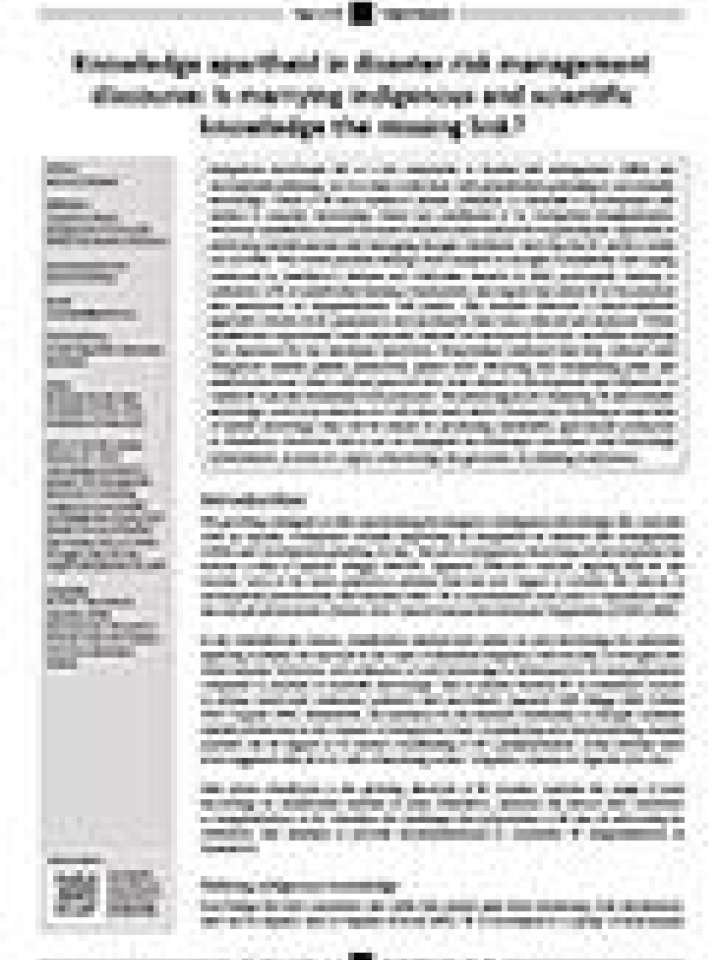Knowledge apartheid in disaster risk management discourse: is marrying indigenous and scientific knowledge the missing link?
Jàmbá: Journal of Disaster Risk Studies, Vol 7, No 1 (2015), 10 pages, doi:10.4102/jamba.v7i1.150
This article presents findings from research on drought vulnerability and coping conducted in Zimbabwe's Buhera and Chikomba districts in 2009, particularly relating to utilisation of indigenous knowledge (IK) in smallholder farming communities, and argues that unless IK is documented and preserved, its marginalisation will persist.
The research followed a mixed-methods approach whereby both quantitative and qualitative data were collected and analysed. Whilst smallholder respondents were randomly selected for household surveys, snowball sampling was employed for key informant interviews. Respondents indicated that they utilised some indigenous rainfall pattern predictions gained from observing and interpreting plant and animal behaviour. Some cultural practices that were critical to development and utilisation of certain IK were also threatened with extinction.
The article argues for 'marrying' IK and scientific knowledge, in the hope that the two will offset each other's weaknesses, resulting in some kind of hybrid knowledge that will be critical for promoting sustainable agricultural production in Zimbabwe. However, this is not for disregard the challenges associated with knowledge hybridisation, as these two types of knowledge are grounded on differing foundations.
Explore further
